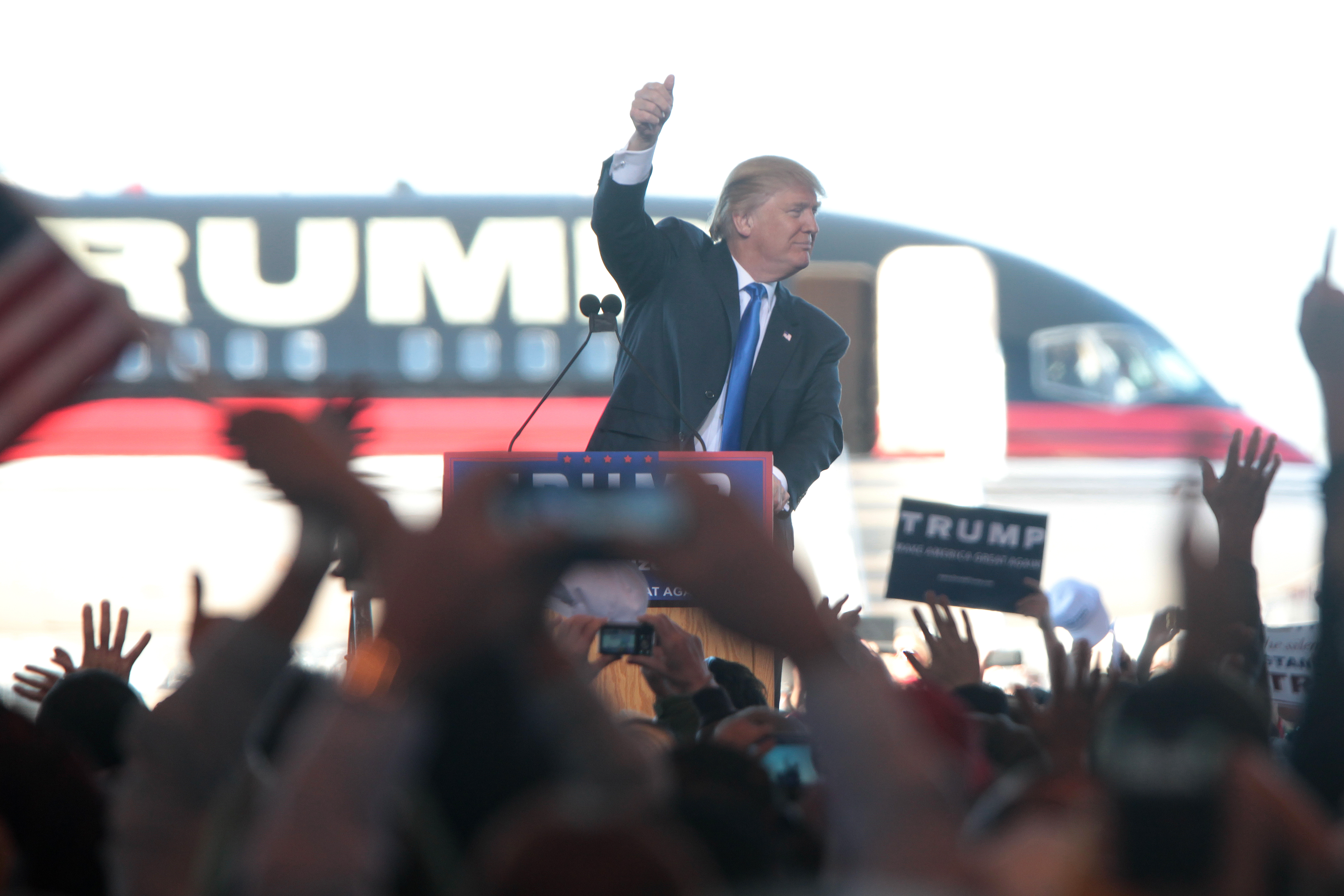A Tale of Two Countries: 110 Days Later
 Photo Courtesy of Gage Skidmore via Flickr Creative Commons
Photo Courtesy of Gage Skidmore via Flickr Creative Commons
This article is a continuation a piece published on 20 November 2015 which can be found here.
Three and half months ago, Donald Trump had not won a single primary. The Republican establishment had still been assuring itself, despite rising unease, that The Donald was a passing fad whose troubling poll numbers wouldn’t result in concrete gains come big primary contests in Iowa, New Hampshire, and on Super Tuesday. Meanwhile, three months ago in France’s first round of regional elections, Marine Le Pen’s Front National took a majority of votes in six regions of the country.
Now, Trump has won 15 state primaries — more than double the number of his closest competitor — and France’s second round of regional elections left the Front National without a single victory. The last article traced back the rises of Donald Trump and Marine Le Pen to similar roots, and now we find ourselves in very different futures. What happened? Why did Donald Trump fail to make a big enough mistake to end his own campaign as analysts said he would? Why is Marine Le Pen turning to Russia for a 17 million Euro loan in order to fund her 2017 presidential campaign after being predicted to succeed in the wake of the November 13 Paris terror attacks?
It’s likely that books will be written about the rise and popularity of Donald J. Trump, but, in a nutshell, the GOP miscalculated. They thought they were dealing with an isolated Donald Trump issue, but in fact they were facing a problem of their own doing. The Tea Party movement and the Republican Party made efforts to convince working class voters to support deregulation of big businesses and breaking up of unions. The rhetoric they relied on fertilized the ground for a Donald Trump to come to the fore. Indeed, historian Richard Norton Smith calls the Trump phenomenon an “insurgency with roots,” pointing to the Republican’s success in uniting a wide and varied voter base against Barack Obama. And to Republican voters, Trump is everything President Obama is not — eager to take on ISIS, unafraid to ‘speak the truth,’ and, let’s face it, white. This also evokes President Reagan’s far-reaching coalition, which included blue-collar democrats who could buy into his vision of America’s future, and where each part of the voter base didn’t agree on how to get there. During the Reagan years, such a phenomenon materialized through his ability to work with a Democratically-dominated House of Representatives. Today, the result is a Republican party whose base is diverse, but shares a vision for a government that stands for their interests. This seems simple enough, but the problem, according to Finance Chairman of the Republican Governor’s Association Fred Malek, is “There’s no single leader and no single institution that can bring a diverse group called the Republican Party together, behind a single candidate. It just doesn’t exist.”
Hence the Republican Party has set its base up for frustration and disillusionment, and a collective desire for the anti-Obama. Conservative media outlets warn viewers that the ‘liberal media’ is not to be trusted by turning facts like climate change into myths, which in turn fills the pockets of lawmakers cozy with fossil fuel lobbies. Furthermore, the fact that Republican lawmakers seem unable to achieve any of the sunny future Reagan promised, besides blocking anything Obama wants to achieve, creates a sense of betrayal towards the establishment. At the end of the day, the Republican establishment has created the opportunity for a strong man like Donald Trump to walk in and pander to the racist and xenophobic underbelly of the Republican Party, which is no longer buying what the GOP establishment has to offer.
Across the Atlantic, the Front National lost all the ground it gained in the first round of regional elections. This was a result of the governing Socialist party urging mass tactical voting to block far-right regional majorities after Le Pen’s party won a historic 30 percent of the vote in the first round. Socialist candidates in some regions withdrew their candidacies in a move to force left-wing voters into Nicolas Sarkozy’s center-right Republican party and to shut out the far-right’s third party. Their goal? ‘Anything but Le Pen.’ France saw its centrist parties and voters come together to counteract the extremist view that threatened to gain a majority, but we are unlikely to see the a similar story in the US in dealing with the Trump situation. Firstly, the American two-party system requires that each party back a single candidate. If that doesn’t happen, parties can collapse and be replaced by new groups that represent the dominant interests. Secondly, the forces working against Marine Le Pen in France are not as desperate or as disheveled as the ones attempting to keep Trump from winning the Republican nomination. The Republican Party establishment is turning on a monster it created, and the outcome will certainly be messy, as opposed to the Front National, which is a more unitary body. Therefore, with France’s presidential elections happening in just over a year, Marine Le Pen seems to have a steeper road ahead of her than Donald Trump does.
Eerily, the founder of the Front National, Jean-Marie Le Pen, endorsed Trump on Twitter: “If I was American, I would vote for Donald Trump..But may God protect him!” To her credit, his daughter Marine Le Pen, who has taken over the leadership of the party since 2011, has distanced herself and her party from her father’s known anti-semitic and racist views. Nevertheless, German Vice Chancellor Sigmar Gabriel warned of the dangerous future if Trump and Le Pen were to be at the helm of their country’s policy stating, “all these right-wing populists are not only a threat to peace and social cohesion, but also to economic development.”
